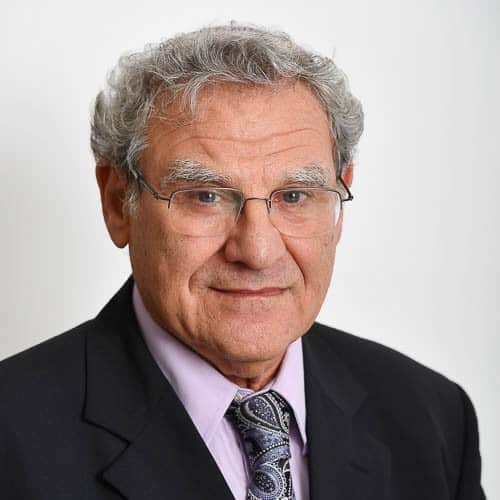Israeli plans to annex the Jordan Valley and parts of the West Bank have drawn criticism from around the world, but most Israelis favor the goal.

Prof. Efraim Inbar, Al-Monitor, 29.05.2020
The plan of the national unity government to extend Israeli control to the Jordan Valley has elicited much more criticism from abroad than in Israel. The acerbic ideological debate over the future of the territories acquired in 1967 is over. The Sinai Peninsula was relinquished in 1979-82. The security significance of the Golan Heights always been an issue of consensus among Israelis, with over 70% supporting Israel maintaining control of the area. The civil war in Syria only solidified such popular positions, while US recognition of Israeli sovereignty over the Golan Heights in 2019 put this issue to rest. Gaza is similarly no longer a bone of contention after the 2005 unilateral withdrawal.
Concerning Judea and Samaria, there is a majority in favor of partition and retaining the settlement blocs, Jerusalem (the Temple Mount in particular) and the Jordan Valley. A recent poll commissioned by the Jerusalem Institute for Strategy and Security confirmed that over 60% of Israelis (and over 70% among the wider Jewish public) favor extending Israeli law to these areas. The current composition of the Knesset favors incorporation of the Jordan Valley into Israel.
The Oslo process with the Palestinians was fueled by a desire to part from densely-populated Arab areas. The establishment of a Palestinian Authority in 1994 was a de facto partition, albeit a messy one, and very few Israelis advocate reconquering the cities of the West Bank. Moreover, Israel built a security barrier in the West Bank in 2002 marking a potential future border, signaling a determination to disengage from Palestinian population centers.
According to a 2018 poll by the Peace Index, half of the Jewish Israeli public thinks that Palestinians deserve an independent state but believe that the two-state solution would be impossible to implement.
The current territorial debate revolves around the amount of land to be relinquished to Palestinian control. For the most part, it is not couched in ideological reasoning but in a pragmatic assessment of what is needed for Israel’s security. Israelis seem to understand that they are locked in a tragic conflict with the Palestinians and are largely reconciled with the idea that the Jewish state will have to live by its sword for the foreseeable future.
The Palestinian rejection of partition proposals (from Prime Minister Ehud Barak in 2000, Prime Minister Ehud Olmert in 2007 and US President Barack Obama in 2014) strengthens the Israeli feeling of having no choice. So far, the criticism from the far left in Israel and abroad has hardly touched the Israeli consensus and solidarity. The parties associated with the failed Oslo peace process have paid dearly in electoral terms.
The bridging of many of Israel’s social rifts has created a stronger society able to withstand the inevitable tests of protracted conflict in the future.
Debates over Israel’s optimal economic system have long disappeared. Nearly all Israelis agree that capitalism is the best way to create wealth. Government policies along such lines are widely supported. The Likud, and primarily Prime Minister Benjamin Netanyahu, have been advocating a market economy while in power for most of the last two decades. Most Israeli parties adhere to a free market ideology while Labor, which criticizes the country’s capitalist orientation, has done poorly in recent elections.
Another social rift, the Ashkenazi-Sephardi cleavage, has also become much less divisive. The number of intermarriages is on the rise (over 20%) and is more socially acceptable, obfuscating ethnic differences. The erosion of socialist practices and the privatization of a centralized economy in the post-1977 period contributed to the growth of a non-Ashkenazi middle class. The number of Sephardi politicians at the local and national levels has increased significantly alongside a similar growth in the senior ranks of the IDF.
Social mobility has also been enhanced by greater access to higher learning. The opening of numerous colleges in the last three decades brought a dramatic increase in the proportion of university students of Sephardi origin. The Israel Statistical Bureau has stopped counting them because young people below 40 are categorized not as Sephardi but of Israeli origin, as they were born in the country.
The predictable tensions between newcomers and established members of society in an immigrant-absorbing country such as Israel have not persisted. Most of the immigrants from the former Soviet Union, despite some difficulties, are highly integrated. Ethiopian Jews, from a very different background, have also faced difficulties but are gradually integrating, as seen by rising numbers among junior officers in combat units, university students, Knesset members and ministers in the new national unity government.
Arguably the only rift within Israeli society still of social, cultural and political importance is the religious-secular divide. Yet the conflict is not between two clearly defined camps between which a reasonable modus vivendi might be found. The proportion of Orthodox Jews within society is growing (about 32%), while secularism is losing ground (the number of self-defined secular Jews is about 40%). A large number of Israelis also identify as traditionalist, in the center of the Orthodox-secular continuum. Precisely because there are Jews of different degrees of observance and knowledge means there is room for mediation and understanding. A Van Leer study from 2019 suggests that the discourse on secular-religious polarization in Israel is shallow and does not reflect the complex reality.
Not everything is perfect in Israeli society or the country’s economy. Nevertheless, the standard of living is increasing continuously. As the coronavirus crisis spread in Israel, the annual UN World Happiness Report for 2020 (published in March) reported that Israel ranked 14th in the world. The country slipped one spot from last year’s survey and three spots from its 11th-place finish in 2018. The Israeli Voice Index published in May 2019 showed that 82% of Israelis are proud of their country’s achievements.
Such data refutes the common image of a deeply torn Israeli society and indicates strong social cohesion able to withstand outside pressures against a popular decision.







 - בניית אתרים
- בניית אתרים